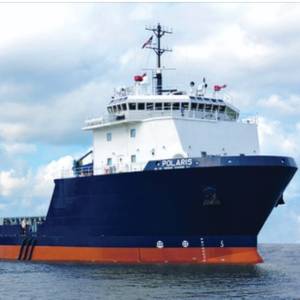
As oil exploration and production goes, so goes the market for Offshore Service Vessels (OSVs) and Platform Supply Vessels (PSVs). Throughout 2025, the prices of oil- which drives exploration and production (E & P), have softened, moving down towards $60/barrel amidst economic uncertainty and a wider than anticipated opening of the taps by major oil producers.
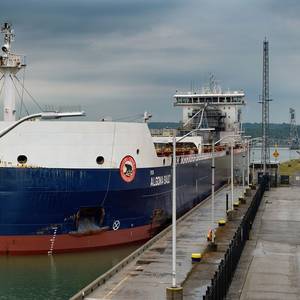
St. Catharines, Ontario–based Algoma Central Corporation (TSX: ALC) reported a solid third quarter for 2025, marked by fleet milestones, steady revenue growth across segments, and ongoing investment in next-generation vessels.For the quarter ended September 30, Algoma posted revenue of C$228 million, up from C$205 million a year earlier, and EBITDA of C$89.7 million, a 19% increase year-over-year.
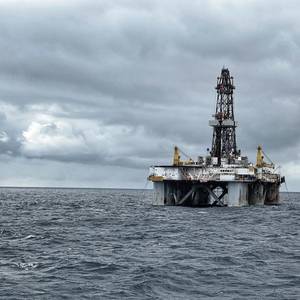
The offshore rig market recovery appears to have taken a pause, with demand tapering off and marketed utilization hitting the lowest levels recorded since recovery began in 2021. A variety of factors have contributed to this – including Saudi Aramco’s suspension of over 30 jackup contracts by up to one year, the entry of newbuild rigs into the market without work to go to

Marine fuel sales at the world's largest bunker hub of Singapore posted a strong start to 2026, driven by healthy demand and higher price premiums, based on port data and trade sources.January 2026 volumes totalled 5.23 million metric tons, up 16.5% year-on-year (YoY), though easing from the record monthly highs of 5.

Oil prices fell slightly on Monday after Iran said it had total control following the biggest anti-government demonstrations in years, easing some concerns over supply, while investors also weighed efforts to resume oil exports from Venezuela.Brent crude futures lost 28 cents, or 0.44%, to $63.06 a barrel by 1402 GMT while U.S. West Texas Intermediate crude was at $58.

Oil prices dipped on their first trading day of 2026 after registering their biggest annual loss since 2020 as investors weighed oversupply concerns against geopolitical risks, including the war in Ukraine and Venezuela exports.Brent crude futures lost 55 cents to $60.29 a barrel by 11:16 a.m. ET (1616 GMT) on Friday while U.S. West Texas Intermediate crude was down 53 cents at $56.89.
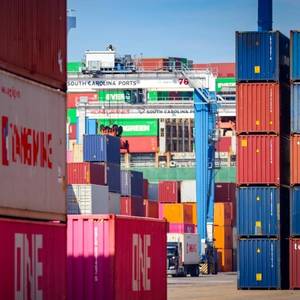
South Carolina Ports recorded 206,859 TEUs at its marine terminals in October, a 1% year-over-year dip, as fiscal year volumes remain above plan. October marked the Port's strongest month for loaded exports since June, with an 18% year-over-year increase.The predicted slowdown mirrors national trends as containerized imports in the U.S. saw a 7.
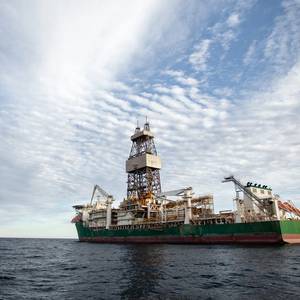
Rigs drilling beneath the deep waters of the Gulf of Mexico will drive U.S. oil industry growth this year and next as onshore production slows due to lower prices and maturing shale fields, and analysts and consultants expect the trend to continue as new technology and friendly regulations attract investment offshore.
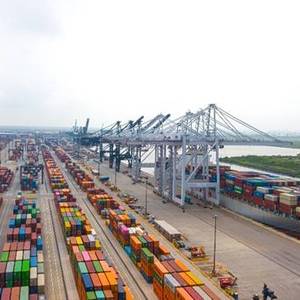
Port Houston recorded sustained growth in August following a standout July. Total tonnage across Port Houston’s public terminals is up 5% year-to-date through August, reflecting steady growth across multiple cargo sectors.After a record-setting July, the Port’s container terminals saw 370,430 twenty-foot equivalent units (TEUs) in August, up 1% from the same month last year.

Shipments of limestone across the Great Lakes held relatively steady in July 2025, totaling 3.53 million tons — a fractional drop of less than 1% compared to the same month last year, according to the Lake Carriers’ Association (LCA). Despite the minimal year-over-year change, the trade fell 6.7% short of the month’s five-year average, reflecting softer demand from some key markets.

Sales of marine bunker fuel in Singapore dipped slightly in the first half of 2025, official data showed on Monday, as shipping uncertainties in the wake of global tariffs capped demand, particularly in the first quarter.Total sales at the world's largest refuelling hub for ships stood at 26.98 million metric tons in January to June this year, dipping 1% from 27.
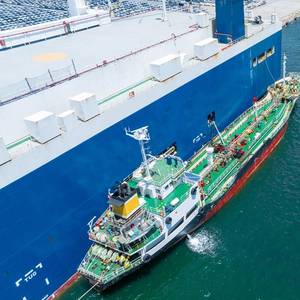
Marine fuel sales in the United Arab Emirates' Fujairah, the world's third-largest bunkering hub, fell in February to their lowest since data started being published in 2021. Volumes, excluding lubricants, totalled 554,117 cubic metres (about 549,000 metric tons) for February, showed latest Fujairah Oil Industry Zone (FOIZ) data published by S&P Global Commodity Insights.